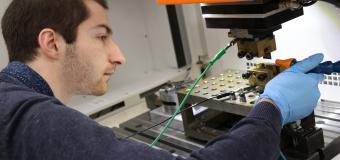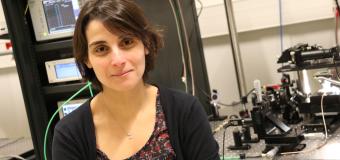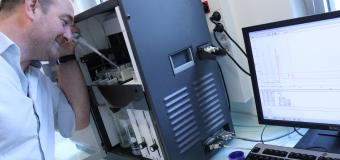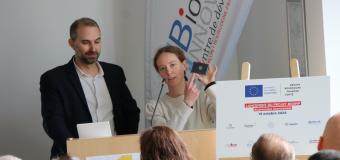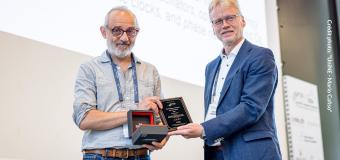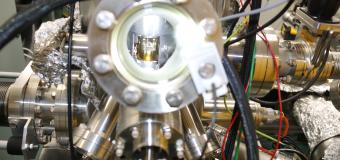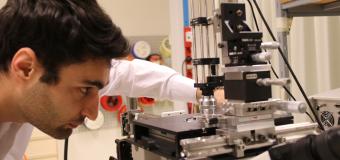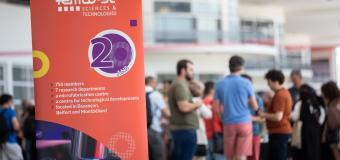Dissociating Nitrogen Molecules Using Silicon Atoms
Researchers from FEMTO-ST have just demonstrated a novel process for dissociating nitrogen molecules through low-energy footprint processes, a crucial step towards the decarbonized production of high-value-added molecules.
The industrial synthesis of ammonia from nitrogen molecules represents 2% of global energy consumption because this synthesis requires very high pressures and temperatures (200 atmospheres, 600°C). The development of energy-efficient processes for the dissociation of nitrogen molecules is a major challenge for the ecological transition. To develop these types of processes, it is essential to understand the elementary mechanisms that cause the dissociation of these nitrogen molecules. As part of the OVATION project, funded by the National Research Agency, ChimieParisTech and FEMTO-ST have demonstrated that silicon atoms have the ability to dissociate these nitrogen molecules at room temperature and under very low pressures (<1 atmosphere). This result was obtained using a scanning tunneling microscope (STM, link to previous news if possible), which allows the study of the modification of the electronic properties of silicon atoms when exposed to nitrogen molecules.
By adjusting the experimental conditions, the researchers demonstrated that silicon atoms could transfer electrons to nitrogen molecules and thus cause their dissociation. This process is efficient and requires little energy.
After successfully demonstrating a new type of nitrogen molecule dissociation, the second step is to form the ammonia molecule. This requires reacting hydrogen molecules inside the STM microscope, a new scientific challenge for the members of FEMTO-ST's nanosciences group.
Contacts :
Prof. Dr Frank PALMINO
Dr. Fréderic CHERIOUX
This article is highlighted as the cover picture of ChemPhysChem : https://chemistry-europe.onlinelibrary.wiley.com/doi/full/10.1002/cphc.202300458
[[{"fid":"23176","view_mode":"default","fields":{"format":"default","alignment":"","field_file_image_alt_text[und][0][value]":false,"field_file_image_title_text[und][0][value]":false,"external_url":""},"type":"media","field_deltas":{"1":{"format":"default","alignment":"","field_file_image_alt_text[und][0][value]":false,"field_file_image_title_text[und][0][value]":false,"external_url":""}},"attributes":{"class":"media-element file-default","data-delta":"1"}}]]



